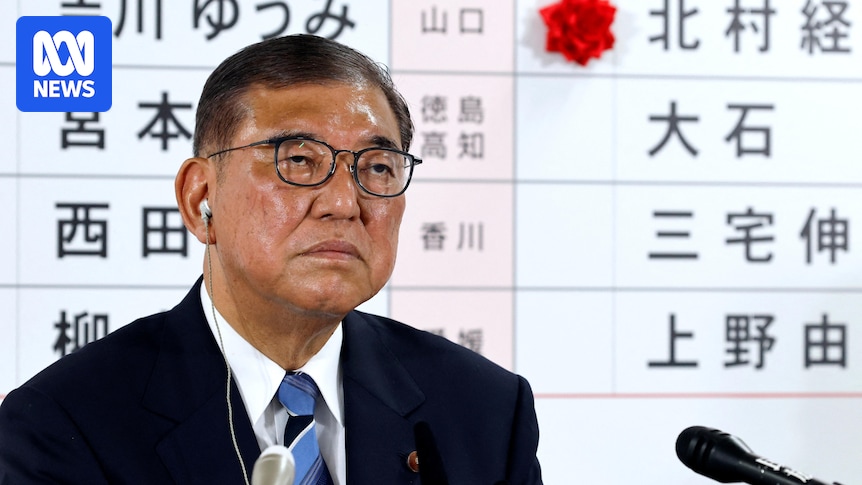Japanese Prime Minister Shigeru Ishiba has vowed to stay on despite his coalition losing power in the country’s upper house.
Ishiba’s Liberal Democratic Party (LDP) and coalition partner Komeito returned 47 seats, short of the 50 seats it needed to ensure a majority in the 248-seat upper chamber in an election where half the seats were up for grabs.
That comes on top of its worst showing in 15 years in October’s lower house election, a vote which has left Ishiba’s administration vulnerable to no-confidence motions and calls from within his own party for leadership change.
Speaking two hours after polls closed to public broadcaster NHK, Mr Ishiba said he “solemnly” accepted the “harsh result”.
“It’s a difficult situation, and we have to take it very humbly and seriously,” he said.
Asked whether he intended to stay on as prime minister and party leader, he said “that’s right”.
The result is the worst for the ruling Liberal Democratic Party (LDP) and its coalition partner since 1999. (Reuters: Issei Kato)
The result also comes as Japan, the world’s fourth-largest economy, faces a deadline of August 1 to strike a trade deal with the United States or face punishing tariffs in its largest export market.
“We are engaged in extremely critical tariff negotiations with the United States … we must never ruin these negotiations,” Mr Ishiba told TV Tokyo later on Sunday night.
“It is only natural to devote our complete dedication and energy to realising our national interests.”
Far-right Sanseito party surges
The main opposition Constitutional Democratic Party finished with 22 seats, and came second.
The far-right Sanseito party, birthed on YouTube a few years ago, has been the surprise package with its “Japanese First” campaign and warnings about a “silent invasion” of foreigners.
It won 14 seats in the chamber, up from one held previously, yet it holds only three seats in the lower house.
The Sanseito party’s popularity has surged in recent elections amid voter frustration at cost-of-living pressures. (Reuters: Issei Kato)
Sanseito, which first emerged during the COVID-19 pandemic spreading conspiracy theories about vaccinations and a cabal of global elites, has dragged once-fringe political rhetoric into the mainstream and gained wider support among frustrated voters.
It remains to be seen whether the party can follow the path of other far-right parties with which it has drawn comparisons, such as Germany’s AFD and Reform UK.
Japan’s oppositional parties advocating for tax cuts and welfare spending have struck a chord with voters, the exit polls showed.
Rising consumer prices — particularly a jump in the cost of rice — have sowed frustration at the government’s response.
Reuters

